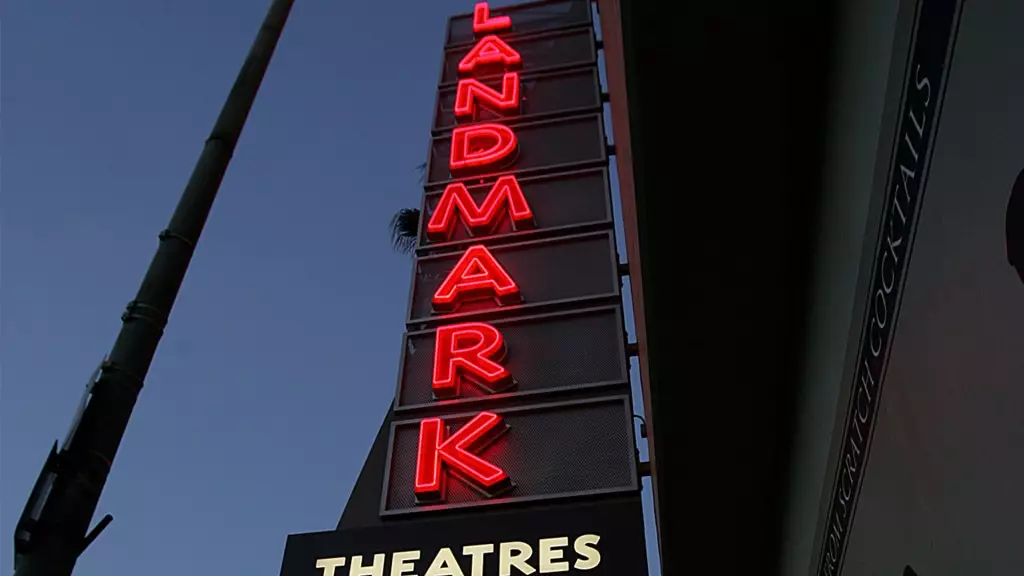The recent foreclosure auction involving Charles Cohen’s properties has thrown a spotlight on the turbulent state of the arthouse cinema sector, a niche that often struggles under the weight of financial challenges, particularly in the wake of unprecedented global events. With creditors like Fortress Investment Group actively seeking to recover debts through such auctions, the future of iconic cinema chains remains precarious.
On a brisk Friday in November, Fortress was the sole contender in bidding for several properties owned by Cohen, including the well-respected U.K. arthouse cinema chain Curzon. After putting forth an offer of $5 million, it became clear that while Fortress was willing to invest, the broader market for these particular assets was lacking interest. What should have been a vibrant competition turned into a rather muted affair, highlighting the stagnation in the cinema market. Particularly disappointing was the complete absence of bids for Landmark Theatres, further underscoring the notion that this beloved chain, acquired by Cohen in late 2018, is now seen as a sinking ship.
The indie distribution sector has long voiced dissatisfaction regarding Cohen’s stewardship of Landmark. Critics have pointed to a marked decrease in investment, the shift to wider releases, and the disastrous closure of significant dedicated arthouse venues — notably, the Landmark LA, which shut its doors in the spring of 2022 due to a lease dispute. This decline raises questions about whether an entity like Landmark can maintain its identity and commitment to diverse, independent cinema in such a challenging climate.
There is no denying the impact of the COVID-19 pandemic on Cinema, especially for arthouse establishments that heavily rely on niche audiences. A Bloomberg report illustrated that Landmark’s performance had significantly dwindled, with net losses exceeding $14 million, thus compromising its perceived value as an entity. Similarly, Curzon also faced ugly financial realities, reporting a net loss of almost $8.5 million.
Cohen’s financial predicament had reached a boiling point to the extent that Fortress eventually sued him earlier in the year for default. A New York State Supreme Court judge intervened by ordering an auction to recover losses tied to Cohen’s massive debts — a staggering $534 million — which were backed by properties including both Landmark and Curzon. Such legal machinations drew attention to the disarray that permeates the business decisions at the helm of these significant cultural assets.
The slight interest shown at the auction reflects a broader discontentment within the indie distribution community regarding the fate of these chains. While the indie world often romanticizes the notion of a thriving arthouse scene, the harsh reality is that many chains are viewed as being in disarray under current management. It would take more than a mere change of ownership to restore the faith of cinephiles and enhance investment in the arthouse realm.
Moreover, with Fortress now potentially on the verge of controlling Curzon, there is a collective concern regarding the future direction of this renowned distributor. The focus thus shifts to whether Fortress will prioritize artistic integrity or simply aim for financial returns. Past witness depositions revealed Cohen’s admissions about their underlying financial struggles, hinting at a crucial need for strategic investment and rejuvenation rather than mere ownership transitions.
As we dissect these auction outcomes and financial revelations, the future landscape of arthouse cinema appears fraught with uncertainty. While Fortress’ interest in Curzon indicates a willingness to invest in this segment, whether the investor understands the cultural context and mission of such theaters remains to be seen.
The results of this auction could spur further discussions on how to address the downturn in the arthouse sector. Stakeholders will need to reassess their approaches to investment, programming, and overall market strategies. With the spotlight now firmly on the economics of arthouse cinemas and their sustainability, the industry must navigate an evolving landscape that combines both fiscal responsibility and an unwavering commitment to artistic integrity.

